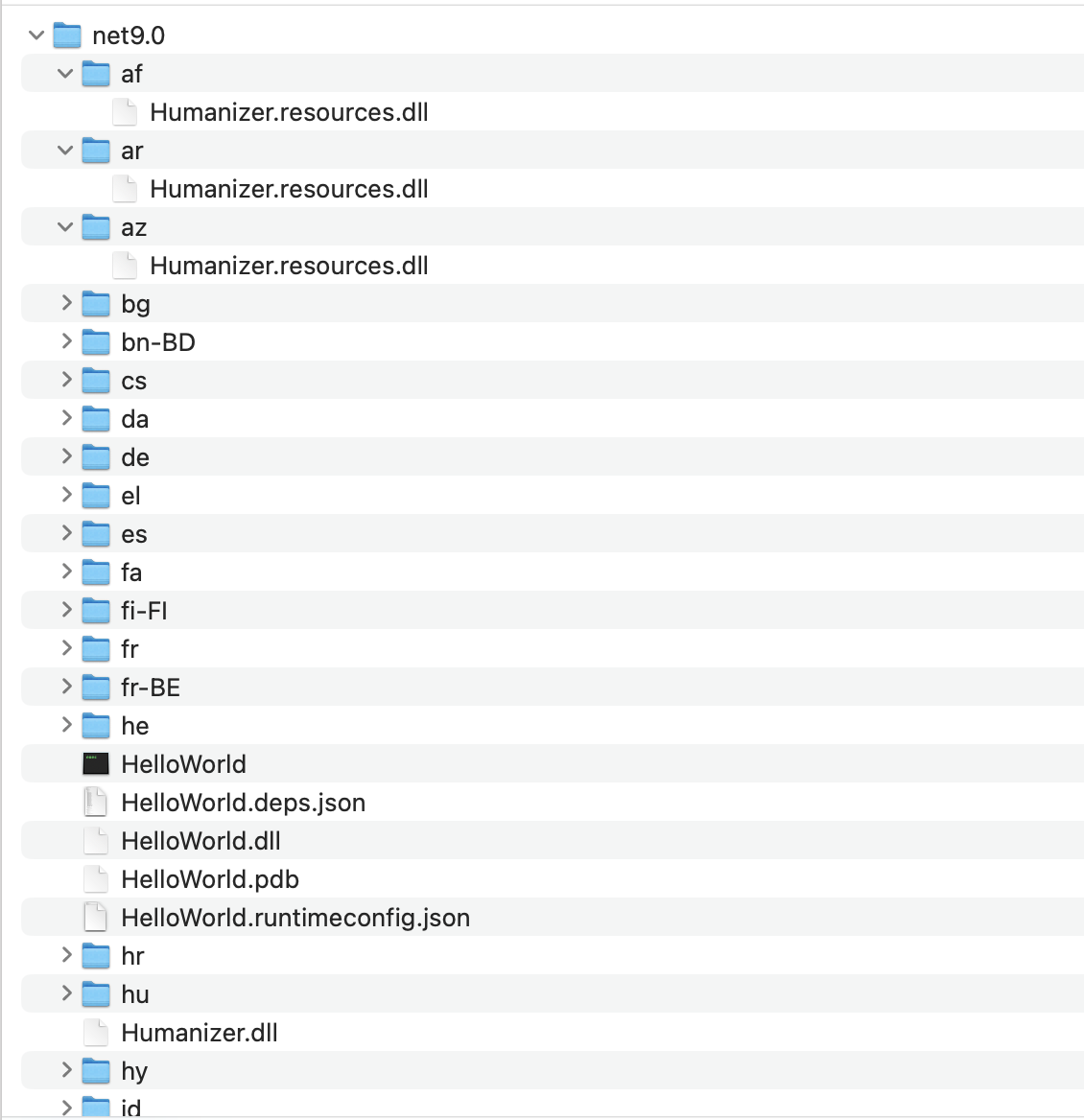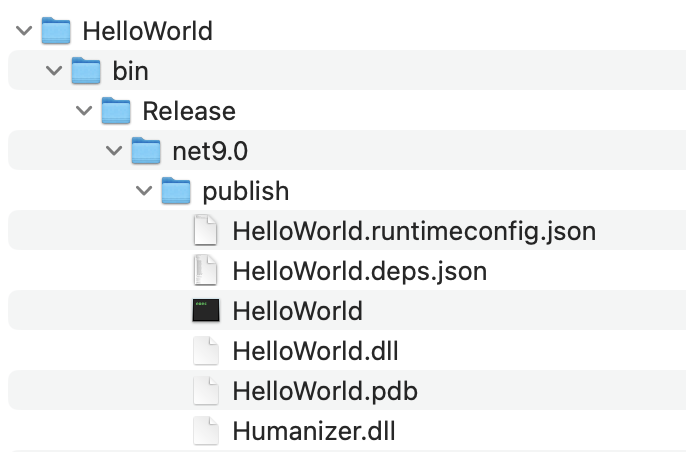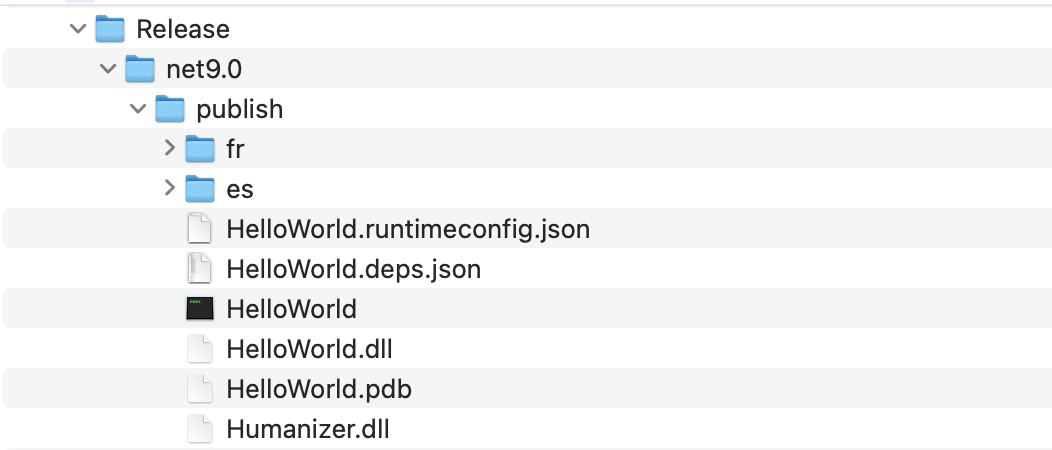Controlling Publishing Of Satellite Resource Assemblies
[C#, .NET]
The .NET platform fully supports building applications in multiple languages and locales.
We can demonstrate this as follows:
Create a new project:
dotnet new console -o HelloWorld
Then, let us add Humanizer, an excellent package with a lot of functionality that extends strings and string handling. You must have changed locations to the folder with the new project.
dotnet add package Humanizer
Let us finally build this application:
dotnet build
Looking in the bin folder, we will see multiple strangely named folders. These contain resources that the Humanizer library uses to support multiple languages and locales.

However, we know for sure that our do-nothing application targets English. Therefore, we do not need support for other languages.
We can control this by adding the following tag to our .csproj
<SatelliteResourceLanguages>en</SatelliteResourceLanguages>
If we now clear and rebuild the application:

We can see our folder no longer has these folders. This is because the English locale is natively supported within the core library.
This will also work if we publish the application:
dotnet publish

To support multiple languages, simply include them in a semicolon-delimited list.
For instance, if I also want French and Spanish …
<SatelliteResourceLanguages>en;fr;es</SatelliteResourceLanguages>
We the re-publish:
dotnet publish

TLDR
The <SatelliteResourceLanguages> tag allows the specification of languages and locales to support when publishing localized applications.
The code is in my GitHub.
Happy hacking!